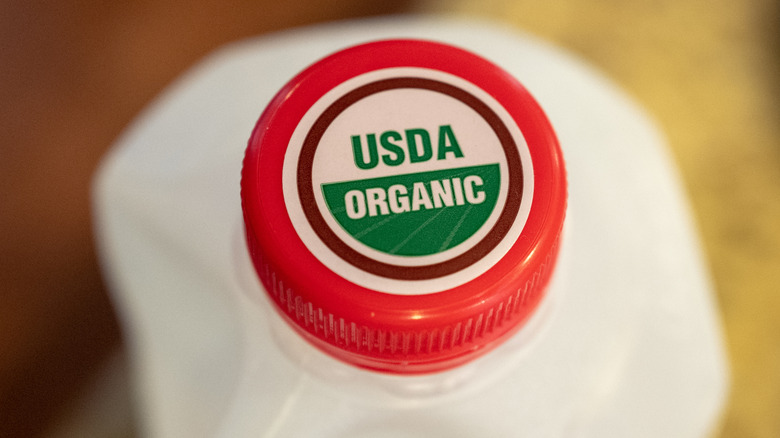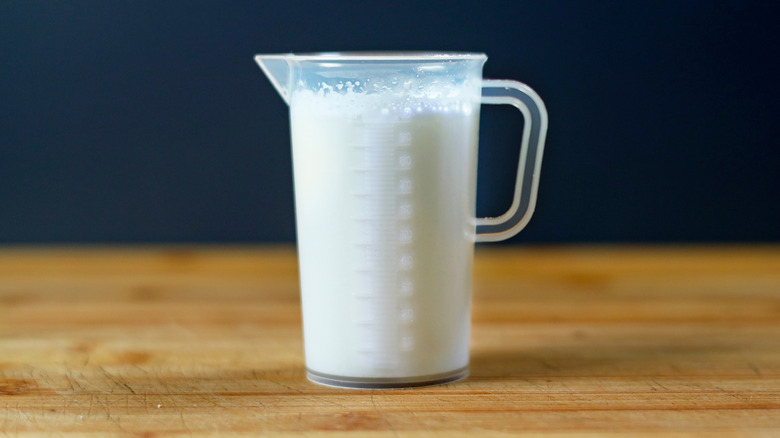Does An 'Organic' Label On Milk Actually Mean Anything?
Many people assume organic foods and drinks are better for you — though they're often more expensive. So, you might be wondering if organic foods, particularly milk, are truly worth the extra cost.
An organic label on milk does have significant meaning. It's in place to ensure farmers producing it abide by strict safeguards and regulations that ensure the purest, most wholesome form of milk. Organic labeling means only cows that eat feed grown without commercial fertilizers, pesticides, or medications (100% organic feed) are used. Organic cows must not be given antibiotics or hormones, according to the American Dairy Association Northeast. The heifers have to be certified organic, raised in a pasture for at least 120 days yearly (per the University of Maryland Extension), and only be given FDA-approved minerals and vitamins.
However, "organic" on a label doesn't mean the product is entirely organic. It simply means it's at least 95% organic. Some farmers exceed minimum organic labeling standards while others simply achieve the minimum requirements.
The Organic Trade Association reported that the majority of conventional (non-organic) retail brands of milk analyzed tested positive for banned antibiotics and controversial pesticides. However, the organic brands tested were free from such contaminants. The association notes that growth hormones in the non-organic varieties tested were 20 times higher than in organic milk.
The main differences between organic and non-organic milk
Organic and regular milk are similar nutritionally, providing the same amounts of protein, calcium, and other micronutrients. All cow's milk, even organic, contains small levels of naturally produced hormones. Organic milk has no added hormones, but non-organic milk manufacturers might also avoid added hormones to ensure superior quality.
But are hormones in milk really a concern? According to a 2015 study published in the Iranian Journal of Public Health, steroid hormones might increase the risk of certain cancers. Another study published in 2022 in the journal Foods found that milk and dairy foods are hormone disruptors, particularly estrogen disruptors, which may affect hormone balance.
So when reaching for that next glass of milk during a quintessential American dinner, which should you grab? The best milk option for you and your family depends on your preference and budget. If you can afford organic milk (especially if you have kids), consider splurging on it or pick plant-based milk (vegan milk) alternatives, which provide many of the same essential nutrients as cow's milk but without the risk of added hormones or antibiotic exposure. Just be sure to avoid using watery rice milk in your baking as it doesn't have enough fat to truly replace dairy.


